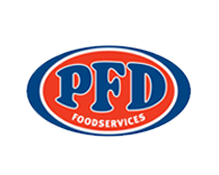Consumer Robotics
Consumer robotics:Consumer robotics are robots that are designed for personal or domestic use. They are usually small, portable, and relatively simple to operate. Common examples of consumer robots include vacuum cleaners, floor cleaners, and window cleaners. Some consumer robots can also perform more complex tasks such as lawn mowing, pool cleaning, and snow removal.
Robotics has become an increasingly important part of modern life. Advances in technology and engineering have enabled the development of robots that are capable of performing a variety of tasks with greater accuracy and efficiency than ever before. Consumer robotics is one such application, enabling individuals to benefit from the advantages offered by robotic automation. This article explores how consumer robotics can be used to improve everyday life.
The potential for consumer robotics extends far beyond mere convenience; it has the capacity to revolutionise our lives in many different ways. By automating mundane or repetitive tasks, these machines can free up time for more creative endeavours; they could also provide access to services which may otherwise not be available due to cost or availability constraints. Furthermore, consumer robots represent an opportunity to expand human capability through enhanced physical and cognitive abilities – allowing us to achieve things which would otherwise be impossible without their assistance.
In order to fully understand the impact that consumer robotics can have on our lives, we must first recognise its current capabilities and limitations, as well as its place within the broader context of technological innovation. Through this exploration, we will gain insight into both present-day applications and future possibilities for consumer robotics and discover how this emerging field of technology holds tremendous potential for improving daily life.
What Is Consumer Robotics?
Consumer robotics is the application of robotic technology in the consumer market. It includes a wide range of products from autonomous robots to industrial-grade machines and covers a variety of applications, such as lawn mowing robots, pool cleaning robots, robot vacuums and other home automation systems. The demand for consumer robots has been steadily rising over the past few years due to their increasing affordability and accessibility to consumers.
The global consumer robot market can be divided into several segments based on cost, functionality and user base. For example, low-cost 'toy' robots are often used by children for educational purposes; mid-level price-point robots cater to hobbyists who want more advanced features than those offered by toy models; while high-end commercial grade robots are generally used in professional settings. Companies should develop an effective strategy when it comes to marketing and selling these types of products — one that takes into account factors such as competitive pricing, product durability and customer support services which may influence the success or failure of a particular product launch.
Robots have become increasingly popular among both businesses and households alike thanks to their ability to automate mundane tasks with greater efficiency compared to humans. This ranges from basic household chores like mopping floors or vacuuming carpets to complex manufacturing processes in factories. As robotics technology continues its rapid development, companies must keep up with trends in order to remain competitive within this space while also providing value to customers through improved quality at lower costs.
Who Made Consumer Robots?
Consumer robotics is a rapidly growing field in the world of technology. The creation of consumer robots has revolutionised many aspects of home life, from mundane tasks like vacuuming to more complex activities such as social interactions and lawn care. There are several major players on the market when it comes to the development and production of consumer robots: Neato Robotics, Bossa Nova Robotics, Domestic Robots, Social Robot, Vacuum Robots and Consumer Home Care Robotics.
Neato Robotics specialises in producing robotic vacuum cleaners with advanced mapping capabilities that can clean large spaces quickly and efficiently. These machines feature sensors that detect obstacles which allow them to navigate around furniture and other objects safely without damaging anything. Additionally, they come equipped with powerful suction motors and high-capacity dustbins for maximum cleaning power.
Bossa Nova Robotics develops domestic robots designed for both entertainment purposes and practical applications such floor mopping and dish-washing. Their products range from small humanoid robots that interact with people through conversation to larger autonomous models capable of performing household chores independently. By using AI algorithms, these robots can learn how to complete various tasks over time by observing their environment and responding accordingly.
Social Robot is another company leading the charge in developing friendly companion bots programmed to be interactive companions rather than dedicated service providers like most traditional domestic robots. They produce two distinct types; one aimed at providing emotional support while the other focuses on teaching children about technology or helping adults stay connected with friends or family members remotely via video calls or text messages.
Vacuum Robots is a line of robot vacuums specifically engineered for residential use by consumers looking to conveniently keep their homes free from dirt and debris without having to lift a finger themselves. With state-of-the-art navigation systems built into each model, these devices are able to detect obstacles like furniture legs so that they don't get stuck during operation – allowing users peace of mind knowing that their floors will remain spotless even when no one’s home!
Finally, Consumer Home Care Robotics offers an array of services including automated lawn mowing solutions for those who want an effortless way to maintain their yards all year round without putting any strain on their bodies. Similarly, there are also specialised floor care products available ranging from basic sweeping devices up through full-scale cleaning systems capable of tackling tough messes whether indoors or out!
What Are The 3 Different Categories Of Robotics?
Consumer robotics is a rapidly growing industry. It has become an integral part of the consumer products market, with dynamic market dynamics and strong growth potential. According to recent studies from IDC, there are three major categories in the consumer robotics market: home care robots, personal mobility robots, and entertainment/hobbyist robots.
Home care robots account for the largest portion of the global consumer robotics market share. These robotic devices enable consumers to perform mundane tasks such as cleaning floors or vacuuming carpets without requiring manual labour. Additionally, some home care robots have been developed that incorporate artificial intelligence (AI) and deep learning technology for improved accuracy and effectiveness when performing daily routines like sweeping or mopping floors. The increasing adoption of AI-driven technologies in home care robot shipments is driving growth within this segment.
Personal mobility robots include autonomous vehicles such as self-driving cars, drones, delivery bots, etc., while entertainment/hobbyist robots encompass humanoid machines used for gaming applications or teaching kids coding skills through fun activities. This category has seen significant growth due to its expanding use cases and availability of affordable models connected to smartphones via Bluetooth technology. Furthermore, increased investments by venture capitalists into research & development initiatives related to consumer robotics has further accelerated the overall growth rate of this sector over the past few years.
Efforts undertaken by key players in terms of product innovation coupled with launch of new services tailored towards specific requirements has helped gain traction among buyers resulting in higher sales figures across all segments within the consumer robotics industry globally. Market size estimates indicate that total revenue generated from consumer home care robotics shipments reached $7.1 billion AUD in 2020 which is expected to reach up to $ 20.1 billion AUD by 2025 at a CAGR of 22%.
What Are The 4 Most Common Types Of Robots?
Robots are playing an important role in consumer robotics. From market research reports to product launches, robots are reshaping the way people interact with technology and their environment. There are four main types of robots that a consumer might encounter: home care robotics, floor care robotics, lawn care robotics, and pool care robotics.
Home care robots typically take on tasks such as vacuuming floors or cleaning windows; they range from mobile platforms to robotic arms depending on what is needed for the task at hand. Floor care robots come in the form of automated sweepers and mops which can be used to clean up messes around the house without user intervention. Lawn care robots allow users to cut grass without having to worry about manual labour while providing efficient cuts across large areas quickly and accurately. Pool care robots help maintain cleanliness and clarity of pools by scrubbing walls and filtering out debris using various technologies.
The different types of consumer robots offer many advantages when it comes to convenience and safety:
- Convenience - Robots can provide automated solutions that save time with minimal effort required from the user; this allows them more free time for other activities or just simply relaxing.
- Safety - Robotic systems may also have sensors that detect obstacles such as pets or furniture so that they do not damage them in any way during cleaning operations.
- Efficiency - Automated solutions can often be programmed to run optimally, meaning that less energy is consumed compared to traditional methods of doing household chores manually. Additionally, these robotic systems may be able to monitor usage patterns over time, allowing owners to understand where improvements can be made for better efficiency gains in the future.
These robot types have been embraced by consumers due to their ability to reduce monotonous daily tasks while increasing safety measures within homes or businesses alike. In addition, they provide cost-effectiveness when compared with manual labour costs associated with performing similar tasks traditionally undertaken by humans - making them attractive options for those looking for ways to increase productivity while reducing spending simultaneously. As product launches continue into new markets and technological advancements become commonplace, consumers will benefit from increased performance capabilities offered by these intelligent machines capable of carrying out mundane tasks reliably each day without requiring supervision or maintenance – freeing up valuable resources otherwise spent on human labour costs alone.
What Are The 5 Primary Areas Of Robotics?
Robotics is a rapidly expanding field with many applications in a variety of contexts, including consumer robotics. Understanding the primary areas of robotics can help us to better understand its impact on our lives and gain insight into potential actionable benefits. To begin, let's look at five key areas of robotics:
1) Robotics Applications (or “Asps”): These are robots that have been designed for specific tasks or purposes such as household robots and robotic toys. Asps offer the ability to automate manual labour and provide cost-saving economic implications.
2) Social Robotics: This involves robots that interact directly with humans, providing entertainment through interactive activities like storytelling and gaming, as well as services such as home care assistance.
3) Consumer Home Care Robotics Shipments & Market Share: This refers to the amount of units shipped from factories to markets; trends in this area indicate an increased demand for advanced technologies used by consumers.
4) Actionable Benefits: The use of robotics provides tangible benefits to users such as improved safety, enhanced comfort levels, reduced energy consumption, and more efficient processes during manual labor operations.
5) Entertainment Robotics: This category includes technology aimed at providing fun experiences for users through virtual reality systems, intelligent game controllers, humanoid robot companions and other gadgets.
In sum then, these five primary areas illustrate how robotics is being implemented across multiple industries today - from automated homes to service providers - all while unlocking new opportunities along the way. It is clear that there are numerous advantages associated with advances in this space both now and moving forward into the future – making it worthwhile to stay abreast of developments in each domain mentioned above.
What Are The Four 4 Types Of Robotics?
Robotics is a rapidly growing field of technology, with applications in consumer robotics and e-commerce. It encompasses four main types of robotics: computer vision, image recognition, speech recognition, and AI technology. Computer vision involves the use of cameras to detect objects or people; image recognition uses algorithms to recognise patterns from digital images; speech recognition allows machines to understand spoken language; and AI technology enables robotic devices to make decisions based on their environment.
The development of hand-held computing devices has led to an increased demand for consumer robots as well. Smart home companies are increasingly incorporating robotic devices into their products, such as vacuum cleaners that can autonomously navigate around obstacles in order to clean floors more efficiently. In addition, voice assistants like Amazon’s Alexa are becoming more popular among consumers due to their ability to respond quickly to commands given by users.
Consumer robotics has seen tremendous growth in recent years due largely to the increasing affordability of these technologies and the convenience they provide users. Companies have invested heavily in developing innovative solutions that meet customer needs better than ever before — including everything from autonomous vehicles and advanced manufacturing robots to smart home appliances and personal assistant bots. As such, it's clear that there is a huge potential for further advances in this area over the coming years thanks to continuing advancements in artificial intelligence (AI) technologies, machine learning systems and other related fields.
Conclusion
Consumer robotics has seen significant advancements in recent years. The emergence of consumer robots has been made possible by the development of new technologies, including artificial intelligence and machine learning algorithms. Robotics is a field that spans multiple areas, including automation, manufacturing, healthcare, retail, agriculture, and many others.
Robotics can be divided into four main categories: industrial robots; service robots; mobile robots; and autonomous drones. Industrial robots are used in factory settings to automate production processes while service robots provide assistance with everyday tasks such as vacuuming floors or mowing lawns. Mobile robots are designed for exploration and navigation purposes while autonomous drones may be used for surveillance or delivery services.
The use of consumer robotics has grown significantly over the past few decades due to its potential for cost savings and improved efficiency. However, it is important to note that there are still challenges associated with this technology which must be addressed before widespread adoption can occur. These include safety concerns and ensuring compliance with existing regulations. Nevertheless, the future of consumer robotics appears promising as more companies continue to explore innovative ways to incorporate these machines into their operations.
PREVIOUS NARROW AI GLOSSARY TERM
NEXT NARROW AI GLOSSARY TERM
Consumer Robotics Definition
Exact match keyword: Consumer Robotics N-Gram Classification: Home robotics, consumer robot market, consumer robot industry Substring Matches: Consumer, Robotics Long-tail variations: "Home Robotics", "Consumer Robot Market", "Consumer Robot Industry" Category: Technology, Robotics Search Intent: Information, Research Keyword Associations: AI, Automation, 3D Printing Semantic Relevance: Autonomous Machines, Intelligent Agents, Smart Machines Parent Category: Technology Subcategories: AI, Automation, 3D Printing Synonyms: Autonomous Machines, Intelligent Agents, Smart Machines Similar Searches: Home Robotics, Consumer Robot Market , Consumer Robot Industry Geographic Relevance: Global Audience Demographics: Technology Professionals , Students , Researchers Brand Mentions : Samsung , Sony , Kawada Industry-specific data : AI technology applications in consumer robotic products Commonly used modifiers : "Automated ", "Intelligent ", "Smart" Topically relevant entities : Autonomous Machines , Intelligent Agents , Smart Machines"Larry will be our digital expert that will enable our sales team and add that technological advantage that our competitors don't have."
Kerry Smith
CEO, PFD Foods
$1.6 billion in revenue 
"Lion is one of Australasia’s largest food and beverage companies, supplying various alcohol products to wholesalers and retailers, and running multiple and frequent trade promotions throughout the year. The creation of promotional plans is a complicated task that requires considerable expertise and effort, and is an area where improved decision-making has the potential to positively impact the sales growth of various Lion products and product categories. Given Complexica’s world-class prediction and optimisation capabilities, award-winning software applications, and significant customer base in the food and alcohol industry, we have selected Complexica as our vendor of choice for trade promotion optimisation."
Mark Powell
National Sales Director, Lion
"At Liquor Barons we have an entrepreneurial mindset and are proud of being proactive rather than reactive in our approach to delivering the best possible customer service, which includes our premier liquor loyalty program and consumer-driven marketing. Given Complexica’s expertise in the Liquor industry, and significant customer base on both the retail and supplier side, we chose Complexica's Promotional Campaign Manager for digitalizing our spreadsheet-based approach for promotion planning, range management, and supplier portal access, which in turn will lift the sophistication of our key marketing processes."
Richard Verney
Marketing Manager
Liquor Barons

"Dulux is a leading marketer and manufacturer of some of Australia’s most recognised paint brands. The Dulux Retail sales team manage a diverse portfolio of products and the execution of our sales and marketing activity within both large, medium and small format home improvement retail stores. We consistently challenge ourselves to innovate and grow and to create greater value for our customers and the end consumer. Given the rise and application of Artificial Intelligence in recent times, we have partnered with Complexica to help us identify the right insight at the right time to improve our focus, decision making, execution, and value creation."
Jay Bedford
National Retail Sales Manager
Dulux

"Following a successful proof-of-concept earlier this year, we have selected Complexica as our vendor of choice for standardizing and optimising our promotional planning activities. Complexica’s Promotional Campaign Manager will provide us with a cloud-based platform for automating and optimising promotional planning for more than 2,700 stores, leading to improved decision-making, promotional effectiveness, and financial outcomes for our retail stores."
Rod Pritchard
Interim CEO, Metcash - Australian Liquor Marketers
$3.4 billion in revenue 
"After evaluating a number of software applications and vendors available on the market, we have decided to partner with Complexica for sales force optimisation and automation. We have found Complexica’s applications to be best suited for our extensive SKU range and large set of customers, being capable of generating recommendations and insights without burdening our sales staff with endless data analysis and interpretation.
Aemel Nordin
Managing Director, Polyaire
"DuluxGroup is pleased to expand its relationship with Complexica, a valued strategic partner and supplier to our business. Complexica’s software will enable DuluxGroup to reduce the amount of time required to generate usable insights, increase our campaign automation capability, personalise our communications based on core metrics, and close the loop on sales results to optimise ongoing digital marketing activity."
James Jones
Group Head of CRM, DuluxGroup
"Instead of hiring hundreds of data scientists to churn through endless sets of data to provide PFD with customer-specific insights and personalised recommendations, Larry, the Digital Analyst® will serve up the answers we need, when we need them, on a fully automated basis without the time and manual processes typically associated with complex analytical tasks.”
Richard Cohen
CIO, PFD Foods
$1.6 billion in revenue 
"As a global innovator in the wine industry, Pernod Ricard Winemakers is always seeking ways to gain efficiencies and best practices across our operational sites. Given the rise of Artificial Intelligence and big data analytics in recent times, we have engaged Complexica to explore how we can achieve a best-in-class wine supply chain using their cloud-based software applications. The engagement is focused on Australia & New Zealand, with a view to expand globally."
Brett McKinnon
Global Operations Director, Pernod Ricard Winemakers
"70% - 80% of what we do is about promotional activity, promotional pricing -- essentially what we take to the marketplace. This is one of the most comprehensive, most complex, one of the most difficult aspect of our business to get right. With Complexica, we will be best in class - there will not be anybody in the market that can perform this task more effectively or more efficiently than we can."
Doug Misener
CEO, Liquor Marketing Group
1,400+ retail stores 
"The key thing that makes such a difference in working with Complexica is their focus on delivering the business benefits and outcomes of the project."
Doug Misener
CEO, Liquor Marketing Group
1,400+ retail stores 
"Australia needs smart technology and people, and it has been a great experience for me to observe Complexica co-founders Zbigniew and Matt Michalewicz assemble great teams of people using their mathematical, logic, programming, and business skills to create world-beating products. They are leaders in taking our bright graduates and forging them into the businesses of the future."
Lewis Owens
Chairman of the Board, SA Water 
"Having known the team behind Complexica for some years ago now, I am struck by their ability to make the complex simple - to use data and all its possibilities for useful purpose. They bring real intelligence to AI and have an commercial approach to its application."
Andrew McEvoy
Managing Director, Fairfax Media - Digital 
"I have worked with the team at Complexica for a number of years and have found them professional, innovative and have appreciated their partnership approach to delivering solutions to complex problems."
Kelvin McGrath
CIO, Asciano 
“Working with Complexica to deliver Project Automate has been a true partnership from the initial stages of analysis of LMG’s existing processes and data handling, through scoping and development phase and onto delivery and process change adoption. The Complexica team have delivered considerable value at each stage and will continue to be a valued partner to LMG."
Gavin Saunders
CFO, Liquor Marketing Group 
“Complexica’s Order Management System and Larry, the Digital Analyst will provide more than 300 Bunzl account managers with real-time analytics and insights, to empower decision making and enhanced support. This will create more time for our teams to enable them to see more customers each day and provide the Bunzl personalised experience.”
Kim Hetherington
CEO, Bunzl Australasia 
"The team behind Complexica develops software products that are at the cutting edge of science and technology, always focused on the opportunities to deliver a decisive competitive edge to business. It has always been a great experience collaborating with Matthew, Zbigniew and Co."
Mike Lomman
GM Demand Chain, Roy Hill Iron Ore 
"The innovations that the Complexica team are capable of continue to amaze me. They look at problems from the client side and use a unique approach to collaborating with and deeply understanding their customers challenges. This uniquely differentiates what they bring to market and how they deliver value to customers."
John Ansley
CIO, Toll Group 
"Rather than building out an internal analytics team to investigate and analyse countless data sets, we have partnered with Complexica to provide our sales reps with the answers they need, when they need them, on a fully automated basis. We are excited about the benefits that Larry, the Digital Analyst will deliver to our business.”
Peter Caughey
CEO, Coventry Group 
“Complexica’s Order Management System and Larry, the Digital Analyst will provide more than 300 Bunzl account managers with real-time analytics and insights, to empower decision making and enhanced support. This will create more time for our teams to enable them to see more customers each day and provide the Bunzl personalised experience.”
Kim Hetherington
CEO, Bunzl Australasia 
"After an evaluation process and successful proof-of-concept in 2016, we have chosen to partner with Complexica to upgrade the technological capability of our in-field sales force. The next-generation Customer Opportunity Profiler provided by Complexica will serve as a key tool for sales staff to optimise their daily activities, personalise conversations and interactions with customers, and analyse data to generate actionable insights."
Stephen Mooney
Group Sales Capability Manager, DuluxGroup
$1.7 billion in revenue
"After evaluating a number of software systems available in the marketplace, we have ultimately selected Complexica as our vendor of choice for sales force automation and CRM. Given the large SKU range we carry and very long tail of customers we serve, Complexica’s applications are best suited to deal with this inherent complexity without burdening our staff with endless data entry."
Nick Carr
CEO, Haircaire Australia
Australia's largest distributor of haircare products
“Asahi Beverages is Australia’s largest brewer, supplying a leading portfolio to wholesalers and retailers, including some of Australia’s most iconic brands. Last year Asahi Beverages acquired Carlton & United Breweries, which is its Australian alcohol business division. To harness the strength of our expanded portfolio, we partner with our customers to run multiple and frequent trade promotions throughout the year, delivering long-term growth for both our business and theirs. Given the inherent complexity in optimising promotional plans and our continued focus on revenue and growth management, we have selected Complexica as our vendor of choice after a successful Proof-of-Concept of its world-class optimisation capabilities.”
Kellie Barnes
Group Chief Information Officer
Asahi Beverages
"Dulux is a leading marketer and manufacturer of some of Australia’s most recognised paint brands. The Dulux Retail sales team manage a diverse portfolio of products and the execution of our sales and marketing activity within both large, medium and small format home improvement retail stores. We consistently challenge ourselves to innovate and grow and to create greater value for our customers and the end consumer. Given the rise and application of Artificial Intelligence in recent times, we have partnered with Complexica to help us identify the right insight at the right time to improve our focus, decision making, execution, and value creation."
Jay Bedford
National Retail Sales Manager, DuluxGroup
"At Liquor Barons we have an entrepreneurial mindset and are proud of being proactive rather than reactive in our approach to delivering the best possible customer service, which includes our premier liquor loyalty program and consumer-driven marketing. Given Complexica’s expertise in the Liquor industry, and significant customer base on both the retail and supplier side, we chose Complexica's Promotional Campaign Manager for digitalizing our spreadsheet-based approach for promotion planning, range management, and supplier portal access, which in turn will lift the sophistication of our key marketing processes."
Richard Verney
Marketing Manager, Liquor Barons


































